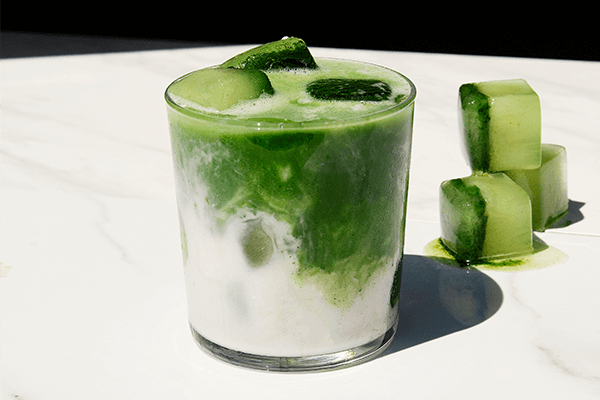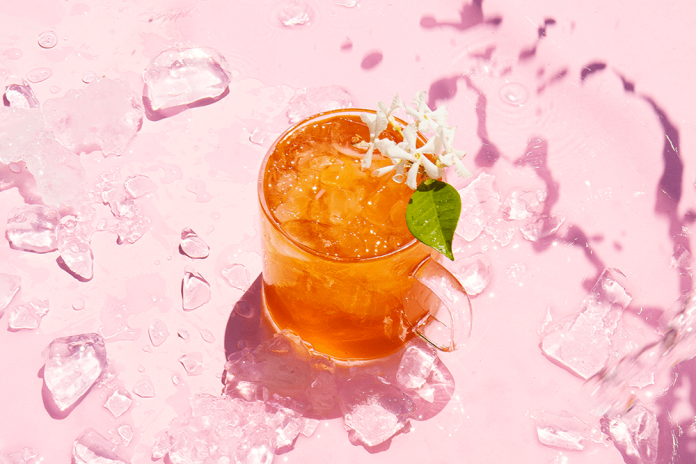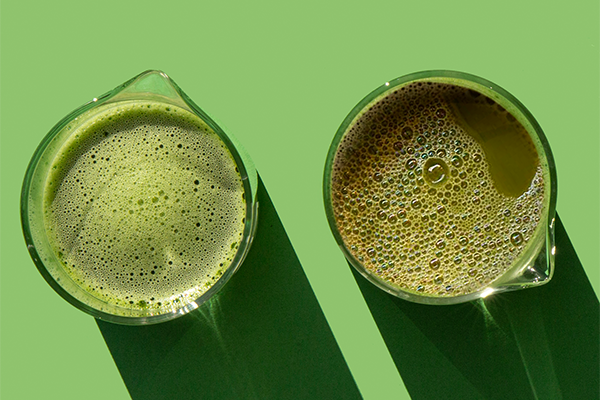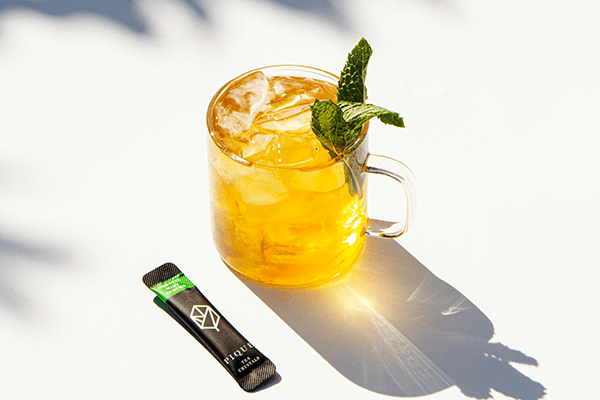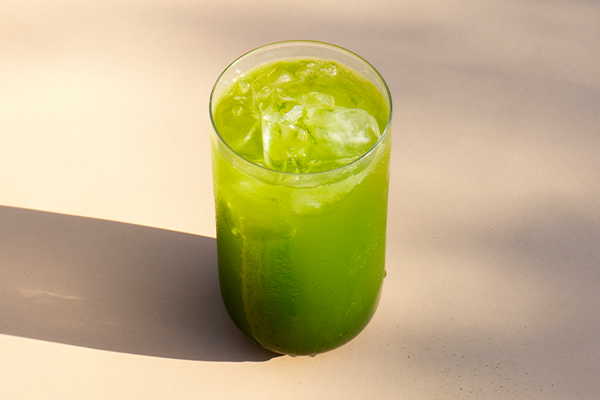Matcha is known for its high concentration of antioxidants and all the health benefits that come with them, but caffeine content isn’t always a part of the discussion.
It is, however, an important component of the green powder’s nutritional profile, and one tea drinkers should understand before drinking matcha in unlimited quantities.
Here’s what you need to know about caffeine in matcha powder, and how to harness its health benefits without overdoing it on your next matcha latte.
How Much Caffeine is In Matcha Tea?
Like regular green tea leaves of the camellia sinensis tea plant, matcha powder does contain caffeine, and because you drink the whole tea leaf rather than just an infusion, you actually get more caffeine per cup depending on how much powder you use.
The traditional Japanese style of matcha preparation calls for one or two teaspoons of powder per serving, with each teaspoon containing roughly 70 mg of caffeine. A regular cup of green tea contains half that amount, while black tea contains about 50mg. Coffee, by comparison, delivers anywhere from 95 to 200mg of caffeine.
The matcha recipe you use matters. Traditionally, matcha is whisked into only two to four ounces of hot water. If you plan to fill up a 12-ounce mug, you could end up using anywhere from three to six teaspoons of powder to achieve the consistency you like… and that’s where matcha’s concentrated caffeine could start to pack a punch.
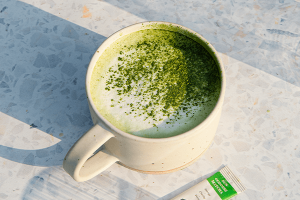
Is The Caffeine in Matcha Bad For You?
Stick to the recommended serving size, and the caffeine content in matcha green tea powder is on par with the average cup o’ joe. Different studies arrive at different conclusions as to what constitutes excessive or safe caffeine intake, but 300 mg appears to be a healthy limit.
Caffeine in moderation can have a number of health benefits. For starters, it speeds up the metabolism and can help to burn fat, especially if consumed before a workout. Caffeine has also been associated with improved performance in cognitive tasks — a big reason worker bees crave an afternoon espresso when they feel their attention lagging. [1]
It may also have neuroprotective effects. [2] Though its exact mechanisms of action are not entirely clear, caffeine seems to help protect dopaminergic neurons in the brain, which can inhibit the progression of some neurological conditions. [3]
What about excessive caffeine intake? (More than 300mg daily.) The short term side effects can include increased or irregular heart rate, feelings of anxiety, and insomnia. Over time, dependence on caffeine can seriously disrupt your sleep cycles, stress your liver, and result in headaches and other withdrawal symptoms should you try to cut back.
Caffeine + L-Theanine = A Winning Combo for Wellness
The energy boost you get from drinking quality matcha may feel different from that provided by coffee. Matcha’s caffeine levels are counteracted by the amino acid and antioxidant L-theanine.
L-theanine has calming properties, and is said to relieve tension and promote feelings of relaxation… quite the opposite of caffeine’s stimulatory effect. Thanks to this balance, matcha green tea provides the alertness we seek from caffeine, without the jitteriness and subsequent crash that can come with it.
The energy boost from matcha comes on more slowly and lasts longer thanks to this combination. Studies have found that green tea drinkers report not just feelings of increased energy, but also “mental clarity” and an improved ability to switch between mental tasks without losing focus.[4][5][6]
If you want L-theanine’s calming effects on their own, uninhibited by caffeine, you can find decaffeinated versions of matcha green tea, though they are harder to come by. And they may not pack quite the antioxidant punch you’re looking for. Phytonutrients are fragile and can become damaged or deactivated by the chemical processes used to strip tea leaves of caffeine.
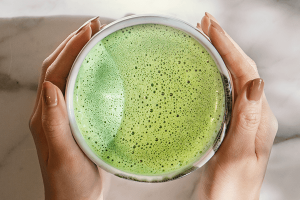
The Takeaway
The amount of caffeine in a typical cup of matcha is greater than what you’ll find in standard brewed green tea, but no more than a cup of coffee.
Bonus: matcha’s high l-theanine content can help to counteract the jitters that caffeine would otherwise cause. It also contains significantly more nutrients (like catechins and chlorophyll) than other energy drinks.
